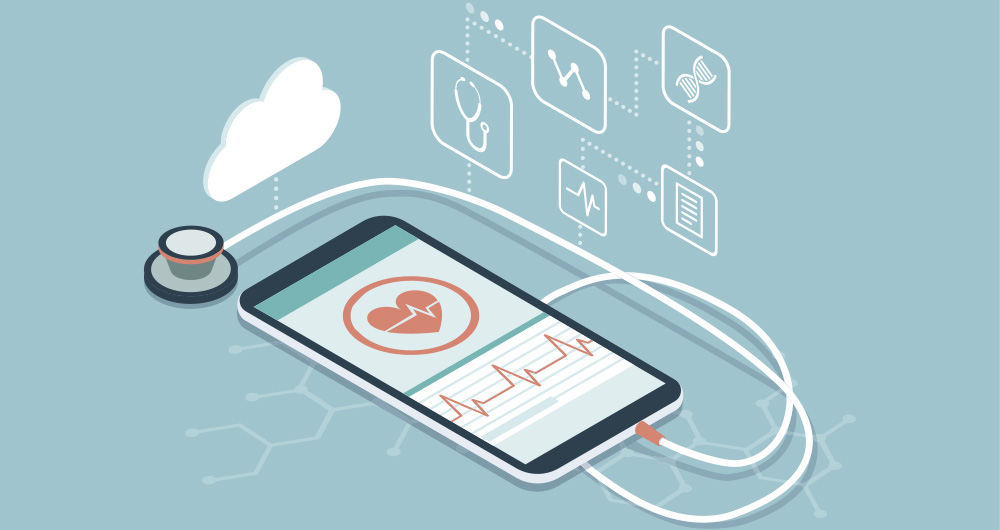New initiatives to open and harness data for health research
Fecha de la noticia: 21-09-2021

In recent months there have been a number of important announcements related to the construction and exploitation of infrastructures and datasets related to health research. These initiatives aim to make data a vital part of a health system that is currently not extracting the maximum possible value from it.
The health data policy landscape, globally in general and in Europe in particular, is highly fragmented and regulatory inconsistency hampers innovation. While at least in Europe there are adequate safeguards to protect sensitive data, trust in the whole data ecosystem is still generally weak. As a result, willingness to share data at all levels is often low. But this situation seems to be changing at great speed, as the high number of initiatives we are seeing being born or developed in 2021 seems to demonstrate.
UK aims to position itself as a world leader
For example, mindful of the limitations we have described in the data ecosystem, the UK government has published in June 2021 the draft of its new strategy "Data saves lives: reshaping health and social care with data", which aims to capitalise on the work done during the pandemic to improve health and care services.
Although it is still in draft form - and has been criticised by privacy experts and patients' rights groups for not clarifying who will have access to the data - it makes no secret of the ambition to make the UK a world leader in health innovation through the use of data. The strategy aims to put people in control of their own data, while supporting the NHS in creating a modernised system fit for the 21st century that is able to open up and harness its vast data assets.
Another interesting initiative is the work being undertaken in 2021 by the Open Data Institute (ODI) as part of a wider research project commissioned by the pharmaceutical company Roche. ODI is mapping the use of health data standards across the European region in order to design a "Data governance playbook for data-driven healthcare projects", which can be used and shared globally.
July 2021 also saw the announcement of the commissioning of what has become the UK's most powerful supercomputer (and 41st in the world rankings), the Cambridge-1per. It will be dedicated to health sciences and to facilitating the resolution of problems related to medical care. With a $100 million investment from US company Nvidia, its creators hope it will help make the process of disease prevention, diagnosis and treatment better, faster and cheaper.

It is known, for example, that the pharmaceutical company GSK is already working with Nvidia to put its massive datasets to work to accelerate research into new drugs and vaccines. GSK will use Cambridge-1 to help discover new therapies faster by combining genetic and clinical data.
The use of data and artificial intelligence in healthcare is enjoying a period of huge growth in the UK that will undoubtedly be accelerated by these new initiatives. Some of these massive patient datasets such as the UK Biobank are not new, having been founded in 2012, but they are taking on renewed prominence in this context. The UK Biobank, available to researchers worldwide, includes anonymised medical and lifestyle records of half a million middle-aged UK patients and is regularly augmented with additional data.
The United States relies on private sector innovations
The United States has a strong innovation in open data from the private sector that is also evident when it comes to health data. For example, the well-known Data for Good project, which Facebook launched in 2017, has placed a strong emphasis on pandemic response in its activities. For example, by means of maps on population movement, they have contributed to a better understanding of the coronavirus crisis, always with an approach that aims to preserve people's privacy. In this type of project, where the input data is highly sensitive, the appropriate implementation of privacy-enhancing technologies for users is of great importance.
The European Union announces important steps
The European Union, on the other hand, is taking important steps, such as progress on the European Health Data Space, one of the Commission's priorities for the 2019-2025 period. We recall that the common European health data space will promote better exchange and access to different types of health data (electronic health records, genomic data, patient registry data, etc.), not only to support healthcare delivery but also for health research and policy making in the field of health.
The public consultation aimed at ensuring that all possible views are considered in the design of a new legal framework for a European health data space - and ensuring transparency and accountability - closed just a few weeks ago and the results, as well as the proposed EU legislation, are expected to be published in the last quarter. This new legislation is expected to provide a decisive impetus within the European Union for the publication of new health datasets.
For the time being, the proposal for a Regulation on European data governance (Data Governance Act) is available, which addresses such relevant and sensitive issues as the transfer of data from the public sector for re-use, the exchange of data between companies for remuneration or the transfer of data for altruistic purposes. Clarifying the regulatory framework for all these issues will undoubtedly contribute to fostering innovation in the field of health.
Spain also joins in boosting the use of health data
In Spain, although with some delay, important initiatives are also beginning to move, the fruits of which we will see in the coming years. Among the investments that the Spanish government will make thanks to the Recovery, Transformation and Resilience Plan, for example, the creation of a healthcare data lake has recently been announced with the aim of facilitating the development and implementation of massive data processing projects.
In some cases, regional health services, such as Andalusia, are already working on the implementation of innovative advanced analytics techniques for real use cases. Thus, in the project to implement a corporate advanced analytics solution, the Andalusian Health System plans to deploy, among others, recommendation engines to optimise waiting lists, computer vision techniques to assist in breast cancer screening or segmentation techniques for chronic patients.
One of the positive effects of the global pandemic caused by Covid-19 is that awareness of the need for an open and trusted data ecosystem that benefits the health of all has been amplified. The convergence of medical knowledge, technology and data science has the potential to revolutionise patient care, and the pandemic may provide a definitive boost to open health data. For the moment, as reported in the study "Analysis of the current state of health data openness at regional level through open data portals" and despite the remaining challenges, the progress made in health data openness, especially in the most advanced regions, is promising.
Content prepared by Jose Luis Marín, Senior Consultant in Data, Strategy, Innovation and Digitalization.
The contents and views expressed in this publication are the sole responsibility of the author.














